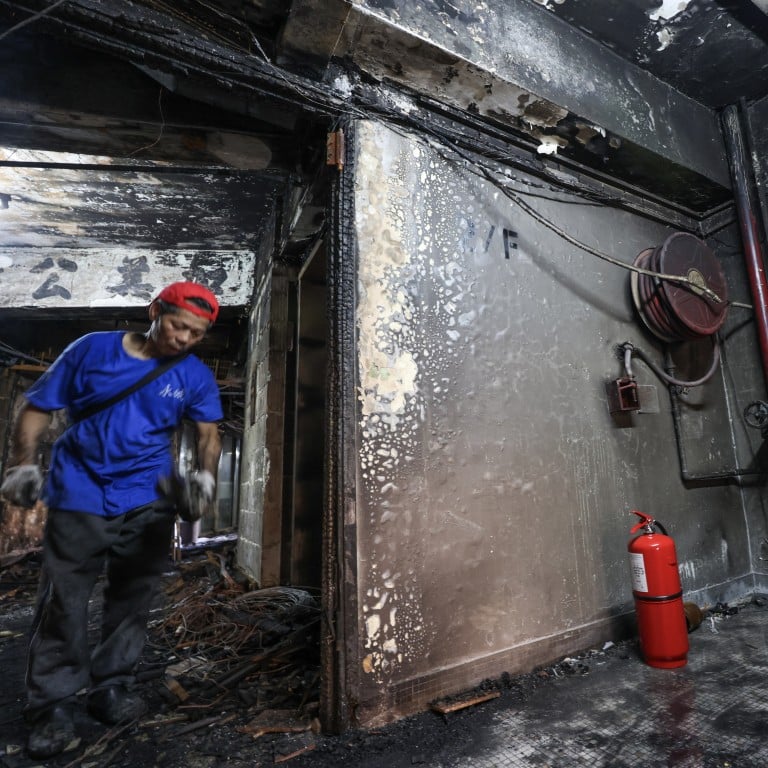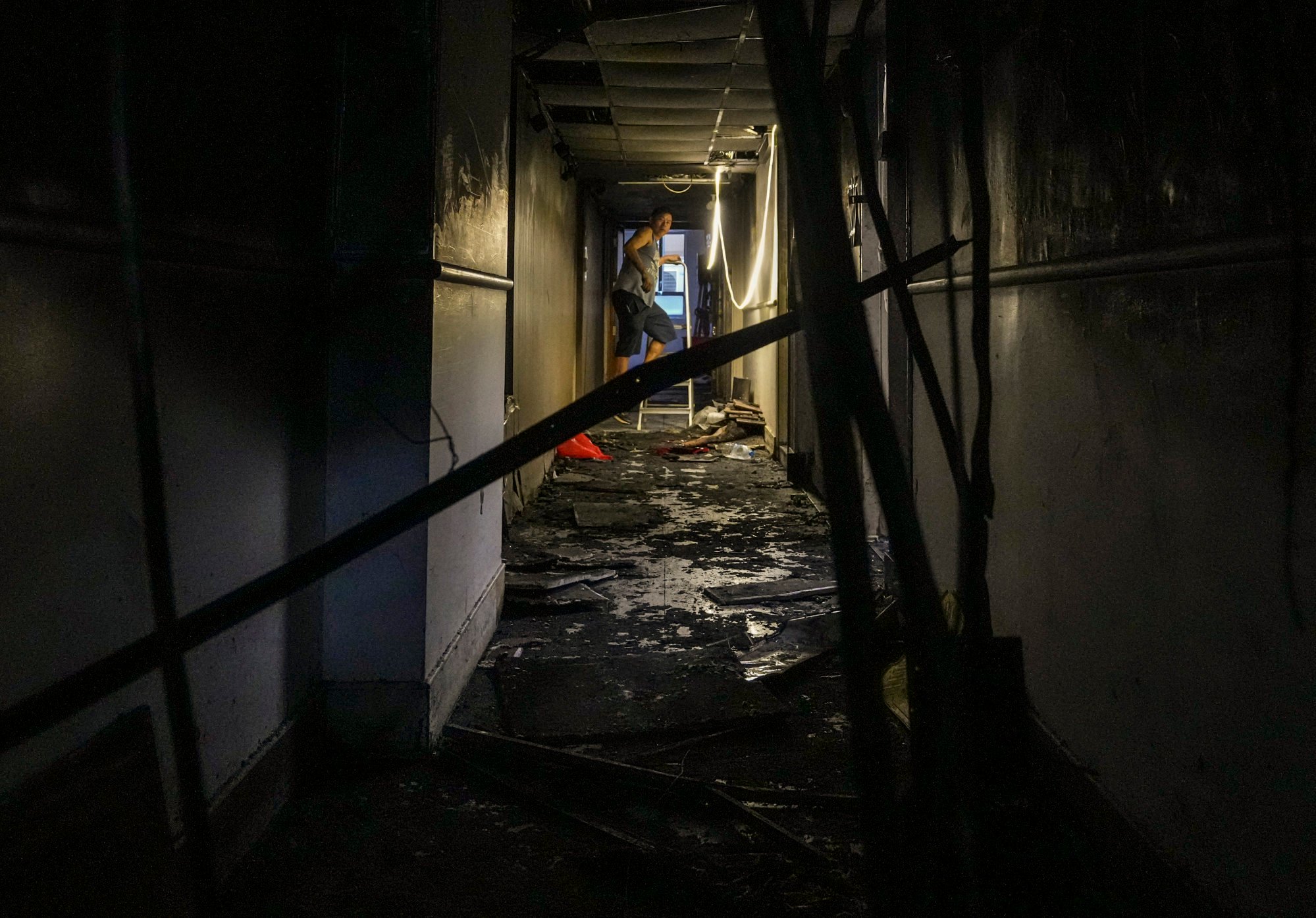
Deadly Hong Kong blaze prompts authorities to switch fire safety focus to buildings with single staircase, guest houses and subdivided flats
- Development chief Bernadette Linn reveals plan after city leader pledges to review enforcement priorities for buildings failing to comply with fire safety orders
- She says government will also target buildings that have not complied with mandatory inspection orders
Hong Kong authorities will step up fire safety enforcement by switching their focus to buildings with a single staircase and those occupied by guest houses and subdivided flats after a deadly blaze last week, the development minister has said.
Secretary for Development Bernadette Linn Hon-ho revealed the plan on Wednesday, a day after the city leader pledged to review enforcement priorities for buildings that failed to comply with fire safety orders.
Hong Kong to speed up on tougher laws to punish those who flout fire safety orders
“We will [reprioritise] enforcement and focus resources for handling high-risk buildings such as single-staircase buildings, [and] those with more guest houses or subdivided units,” Linn told a Legislative Council Finance Committee meeting.
She said the government would also target buildings that had not complied with mandatory inspection orders and had yet to appoint a professional to conduct check-ups.
Authorities would internally deploy manpower to step up prosecutions as well, she said.

Chief Executive John Lee Ka-chiu on Tuesday said the government would table legal amendments to the Fire Safety (Buildings) Ordinance in two to three months, to increase the penalty for non-compliance with orders from a maximum of HK$50,000 (US$6,382) to HK$200,000.
The amendments also would seek further fines for every day the offences continued, ranging from HK$5,000 to HK$20,000.
Residents of fire-hit Hong Kong building allowed back home but grim sights await
A blaze at New Lucky House, a mixed-use 60-year-old building in Yau Ma Tei with guest houses and subdivided flats, killed five people and injured 43 last Wednesday, turning the public’s attention to fire safety.
The fire-stricken block was one of 9,578 buildings that had failed to comply with fire safety notices as of last December.
It also had not observed a compulsory building inspection order for six years.
9,578 buildings have not complied with Hong Kong fire safety orders
Under the mandatory inspection scheme, owners’ corporations of buildings aged 30 or above must appoint a registered inspector to conduct checks within six months of receiving a statutory notice and complete necessary repairs within a year.
Owners who are convicted of failing to comply with the inspection order face a maximum fine of HK$50,000 and one year’s imprisonment. They are also fined HK$5,000 for every day the offences continue.
Development chief Linn on Wednesday said the average fine the court imposed on owners failing to comply with an order in the past three years was HK$2,500, with the stiffest penalty close to HK$33,000.
The Post shares basics for escaping burning building after New Lucky House fire
There were no records of imprisonment or suspended sentences in these cases, she added.
“We agree that there is a need to impose a heavier penalty,” Linn said.
“It also includes simplifying prosecution procedures, such as whether owners will face a fixed penalty if they fail to inspect their buildings that have reached a certain age.”
Whether penalties for building inspection non-compliance should reach the level of those for fire safety orders, Linn said the latter was more serious and the government had to strike a balance.
The government in October pledged to roll out an amendment to the Buildings Ordinance this year, to streamline prosecution procedures, lower the prosecution threshold and raise penalties.

